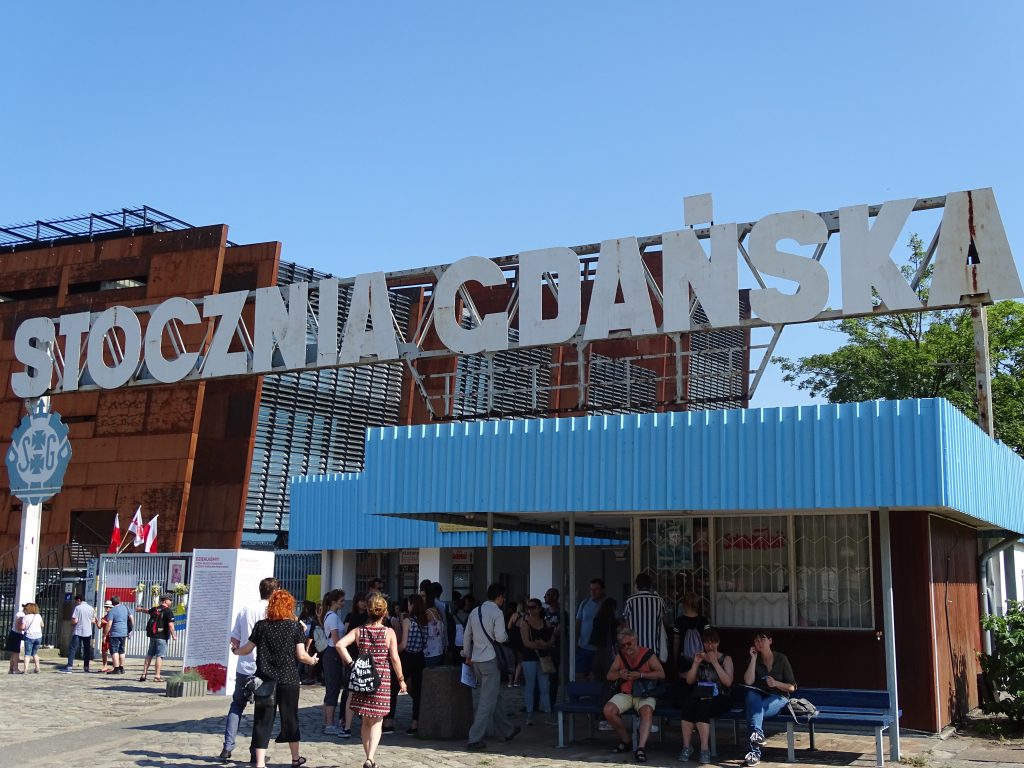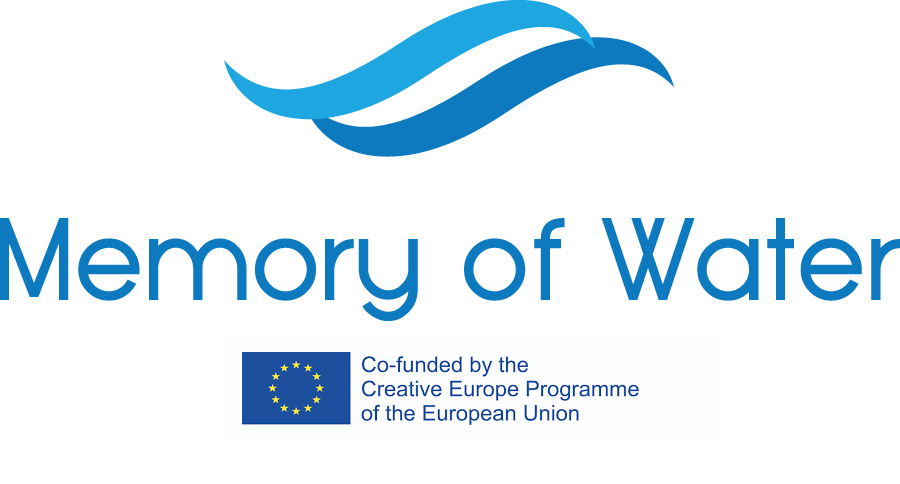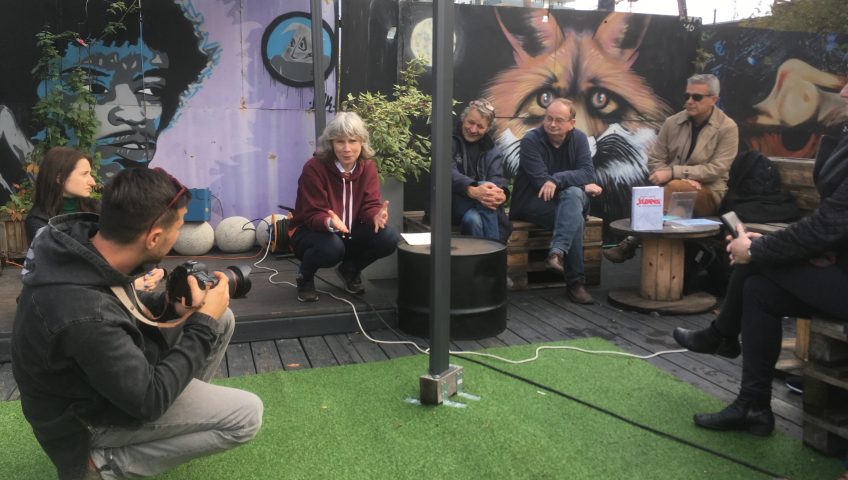I presented an event titled “The Broadcast” in reference to the pirate Radio Solidarność (Radio Solidarity) which operated during martial law in the early 1980s in Poland. For Memory of Water, I organised an audience at the historic Gate No. 2 of the Gdańsk Shipyard with Piotr Jagielski, who supervised the technical equipment of Radio Solidarność, and with Maciej Pawlak, who was its editor and author of the book “Radio Solidarność in the Tri-City”. The Gate No. 2 is the place where Lech Wałęsa stood to announce to the waiting crowds the deal that had been struck with the Communist government in 1980.

During this event, the public listened to selected archival programmes from Radio Solidarity, and from the recorded projects: “Shipyard is a Woman” and “Shipyard on Air.” The 3-hour programme was transmitted in the VHF band near the historic shipyard gate. I selected fragments relating to the strike and pacification of the Gdańsk Shipyard workers as well as the introduction of martial law. The voices recorded on tapes and played back during the broadcast evoked
the energy and memories of the people who overcame their fear and uncertainty to show great courage and bravery. They were united. In those days, such pirate broadcasts appeared unscheduled, disturbing the peace of everyday radio programmes. I became even more convinced of the power, or agency, of the human voice. Recorded and listened to after many years, it reaches the innermost recesses of our minds.
I regret that I could not transmit my "Broadcast" using radio waves. Internet radio and podcasts are free of noise and interference, yet they cease to be like a living organism travelling on radio waves. Huge industrial plants like the Gdańsk Shipyard built communities – interpersonal structures that broke down once the plant closed down. To me, the most important thing about Memory of Water is remembering and reminding – bringing back and highlighting the memories of people unmentioned in any textbooks, and participating in other artists' projects. I like looking at their work and their fresh outlook on the shipyard and its history. It was a great experience for me which has confirmed that the language of art is international and borderless. We talk about people, memory, respect and work.
Iwona Zając

